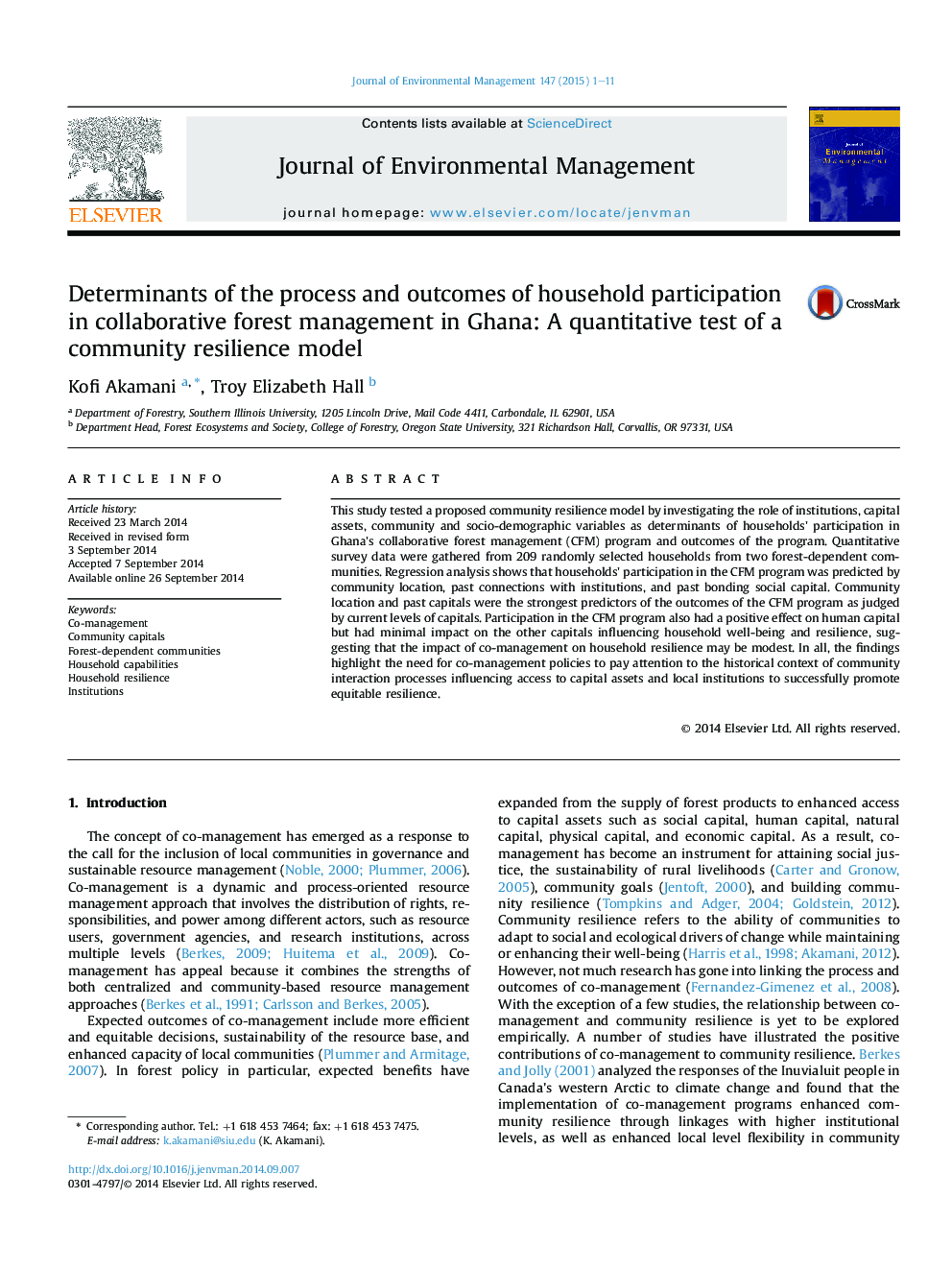| Article ID | Journal | Published Year | Pages | File Type |
|---|---|---|---|---|
| 1055642 | Journal of Environmental Management | 2015 | 11 Pages |
•We analyzed household resilience to collaborative forest management (CFM) in Ghana.•We used quantitative survey data from two forest-dependent communities.•Past household connections to institutions strongly predicted CFM participation.•Past household capitals predicted the resilience outcomes of the CFM program.•Participation in the CFM program had minimal effect on resilience outcomes.
This study tested a proposed community resilience model by investigating the role of institutions, capital assets, community and socio-demographic variables as determinants of households' participation in Ghana's collaborative forest management (CFM) program and outcomes of the program. Quantitative survey data were gathered from 209 randomly selected households from two forest-dependent communities. Regression analysis shows that households' participation in the CFM program was predicted by community location, past connections with institutions, and past bonding social capital. Community location and past capitals were the strongest predictors of the outcomes of the CFM program as judged by current levels of capitals. Participation in the CFM program also had a positive effect on human capital but had minimal impact on the other capitals influencing household well-being and resilience, suggesting that the impact of co-management on household resilience may be modest. In all, the findings highlight the need for co-management policies to pay attention to the historical context of community interaction processes influencing access to capital assets and local institutions to successfully promote equitable resilience.
